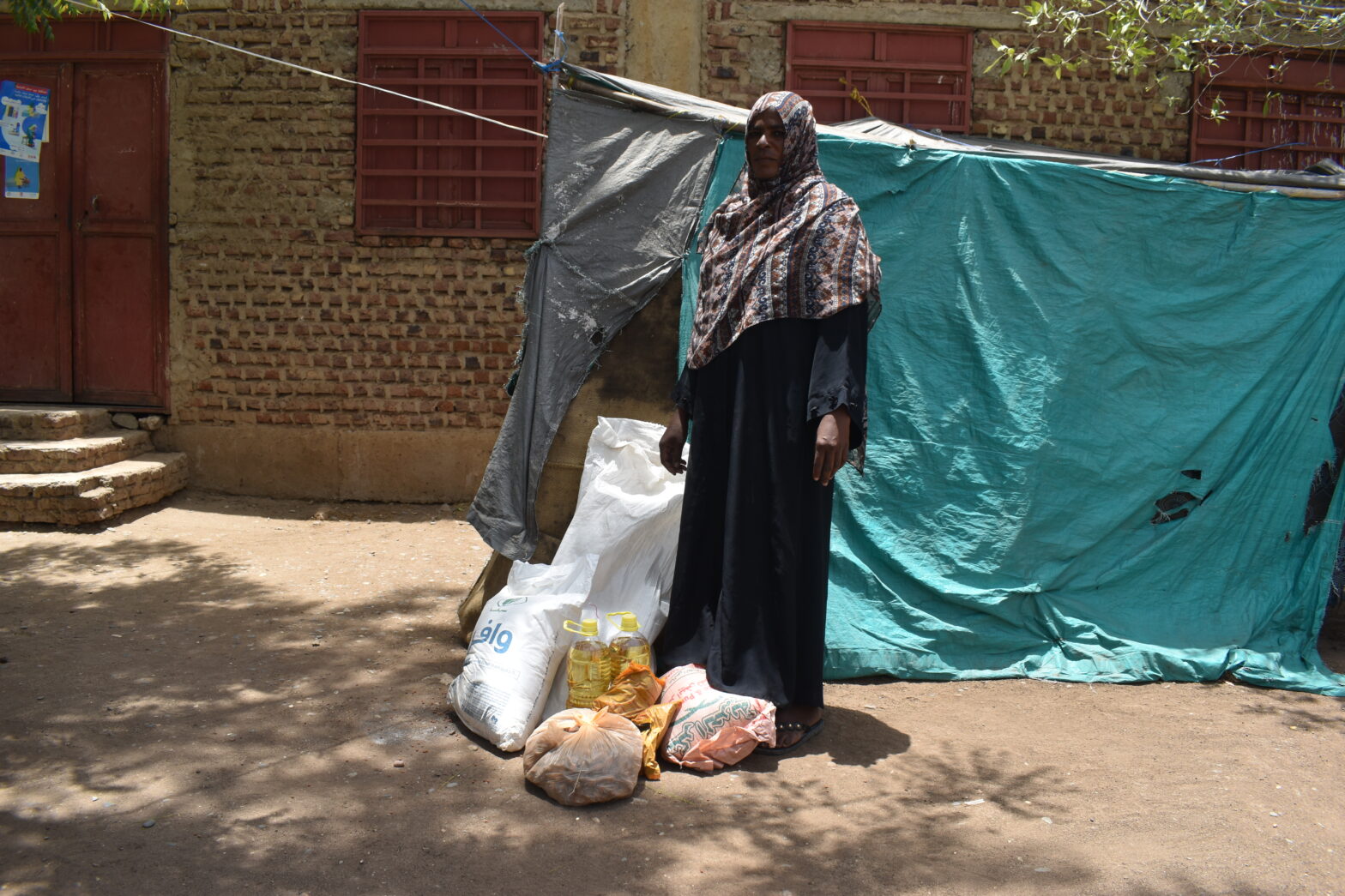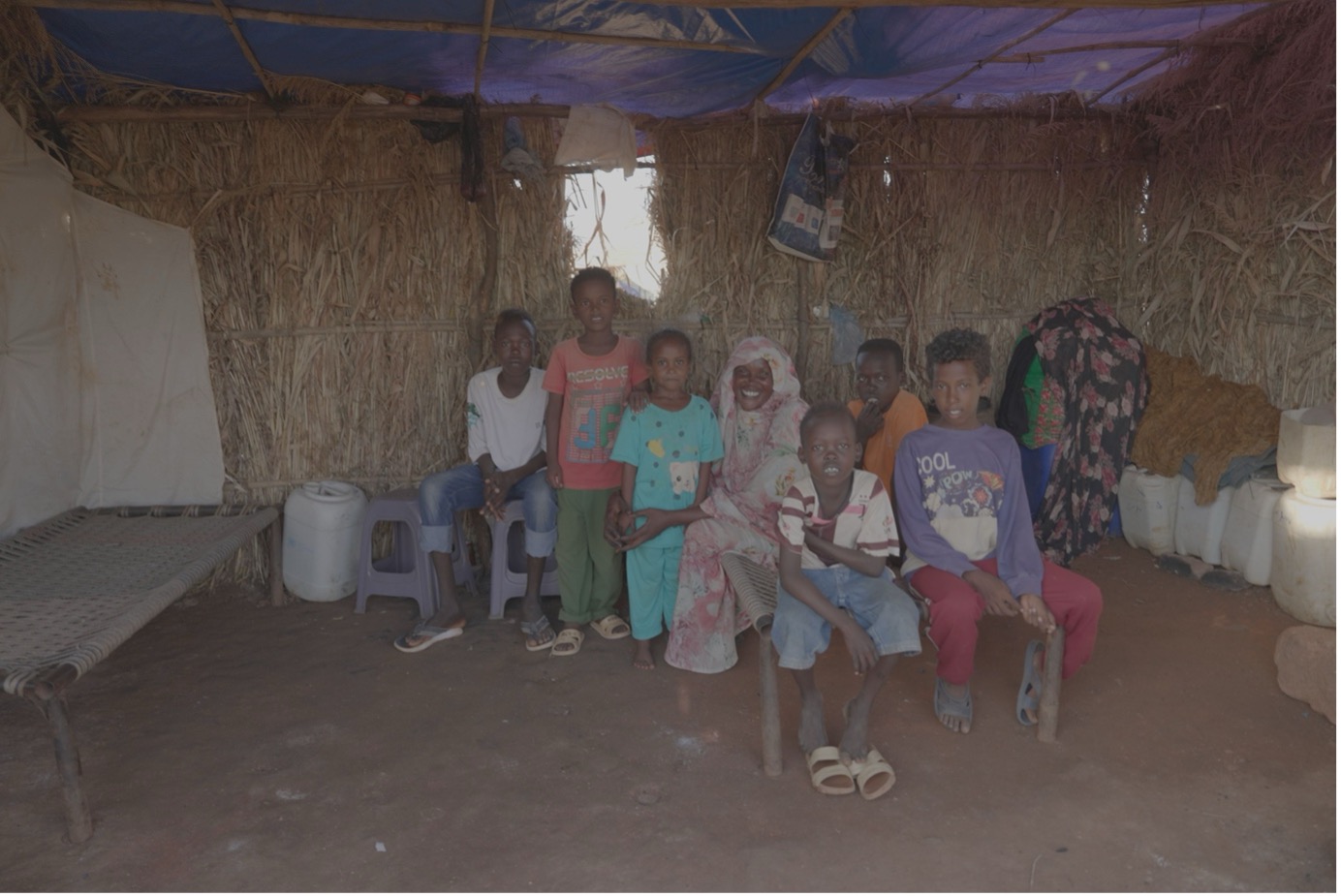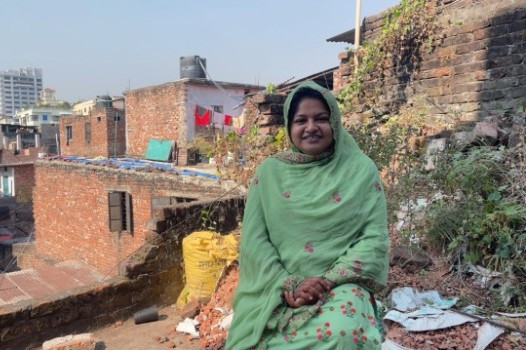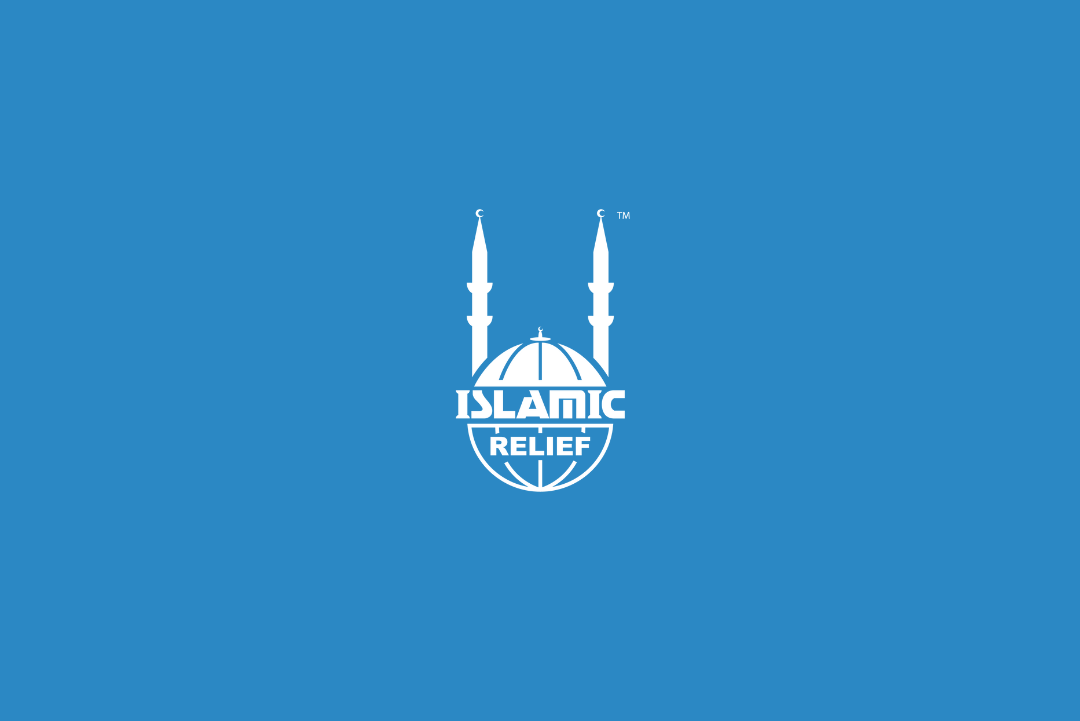In a corner of Gedaref camp, located in eastern Sudan near the Ethiopian border, temporary shelters stretch out in a patchwork of tarpaulins and makeshift structures. Amid the intense heat and scarce resources, Sawsan stands as a sign of hope. She has been displaced from Sennar since June, bringing her own children with her, along with nieces and nephews who lost their parents to Sudan’s ongoing conflict.
Sawsan’s story, told to mark International Women’s Day and its theme For ALL women and girls: Rights. Equality. Empowerment. highlights how one woman’s courage can make an immeasurable difference in times of great hardship.
A family shattered by conflict
Sawsan’s ordeal began when heavy conflict forced her family to flee multiple times. “My sister’s children are with me. Their parents have passed away, and now the children have no one but me” she explains from Gedaref camp, recounting how she received the devastating news of her brother-in-law’s death via a social media post. “Their mother passed away a long time ago,” she adds. “My father and mother also passed away, so I’m the one caring for these children now.”
Sawsan’s own immediate family has not been spared: she has brothers and other relatives who remain unaccounted for. “I haven’t heard anything from my missing brothers, no phone calls, no updates,” she says. Sawsan’s experience is shared by countless others in Sudan, where conflict has seen families separated and displaced overnight.
Protecting children in crisis
As well as her 2 daughters and 3 sons, Sawsan has assumed responsibility for 4 children orphaned by the conflict, bringing the total number of children in her care to 9. Among these are her nieces and nephews, who lost their parents to the war. “They are 3 boys and 1 girl,” she explains. “He [their father] wasn’t with them when we fled. Their mother had already passed away, and now their father is gone too.”
Determined to offer stability, Sawsan focuses on providing shelter, food, and emotional support to the children in her care. Even as resources dwindle, her priority is ensuring each child feels secure amid the trauma of war and the camp’s harsh environment.
Community leadership and psychosocial support
Despite her own heavy burdens, Sawsan has become a de facto community leader and mediator in the camp. “Everyone here knows my name,” she says, explaining how residents seek her out for guidance. She mediates family disputes, advocates for basic needs, and encourages neighbours to look out for one another.
When Islamic Relief brought cubes, balls, and other toys into the camp, Sawsan helped take them to the children. “I went and spoke to those in charge,” she says. “Because I’m responsible for these kids, and they deserve something to brighten their days.”
War leaves invisible wounds that can be just as devastating as physical losses. This is why psychosocial programmes, such as those run by Islamic Relief, have become indispensable to many displaced people like Sawsan. These programmes offer counselling, group therapy, and recreational activities to help individuals process trauma and rebuild emotional resilience. “When I feel overwhelmed, my daughters notice,” she says. “Sometimes they tell me, ‘It’s okay, mum, we understand.’”
Sawsan actively participates in psychosocial support sessions. “I left home feeling frustrated but came back happy,” she says of one recent session. “Talking about my worries helped me feel lighter. Now, I encourage other women to come forward if they need to share their burdens.”
The importance of safe spaces for women
In the cramped conditions of the camp, women face heightened challenges. They bear the responsibility of childcare, manage emotional labour, and navigate resource shortages, all while grappling with their own trauma.
“Women here don’t have anyone to talk to about their worries,” Sawsan explains. “Sometimes, you just need a place where you can cry, let out the stress, and then move on.” Safe spaces and counselling sessions provide crucial outlets for emotional release, conflict resolution, and communal support. War leaves invisible wounds that can be just as devastating as physical losses. This is why psychosocial programmes, such as those run by Islamic Relief, have become indispensable to many displaced people like Sawsan. These programs offer counselling, group therapy, and recreational activities to help individuals process trauma and rebuild emotional resilience.”
Through psychosocial programmes and community support networks, women like Sawsan gain the tools they need to cope. “The sessions taught us that it’s okay to express our frustrations,” she says. “Some people might be too shy to come forward, but I encourage them to speak up if they’re hurting or anxious.”
Moreover, these safe spaces help women address the violence and tension that can arise in cramped conditions. “There’s more violence here,” she acknowledges. “But if you have a place to go, it can help de-escalate problems before they become worse.”
Hopes for the future
Through the hardships, Sawsan dreams of reuniting with her missing relatives and returning to her hometown. “I pray to God that this war ends,” she says. “I want to see who we’ve lost, who’s still there, and who is missing. I ask God to protect my brothers who are in the war.”
Sawasan also intends to care for her elderly grandmother. “She came to Gedaref briefly but found it too difficult here. I sent her some money so she could return to Al-Faw, a district of Al Qadarif. I hope to go back for her and make sure she’s safe.”
Despite the uncertainty, Sawsan’s faith in humanity shines. “People should unite, support each other, and help carry each other’s burdens,” she says. “We’ve come here to escape the fighting. We should help each other, not add to our troubles.”
A testament to women’s resolve
Sawsan’s experience underscores the resilience and strength that women often carry in conflict zones – nurturing children, building unity, and offering solace when life seems impossible. Her story exemplifies this International Women’s Day theme of Rights. Equality. Empowerment, not as abstract notions, but as vital lifelines that can sustain communities during their most terrifying moments.
In honouring Sawsan, we honour all women who refuse to let their hope be extinguished, even when tragedy looms large. Their determination to protect families and support neighbours becomes the backbone of societies fractured by violence and displacement.
Islamic Relief has worked in Sudan for 40 years, providing vital humanitarian assistance including hygiene, food and mental health support. As the conflict continues to devastate lives, your support is urgently needed. Please donate to our International Emergency and help us save lives and restore hope.









